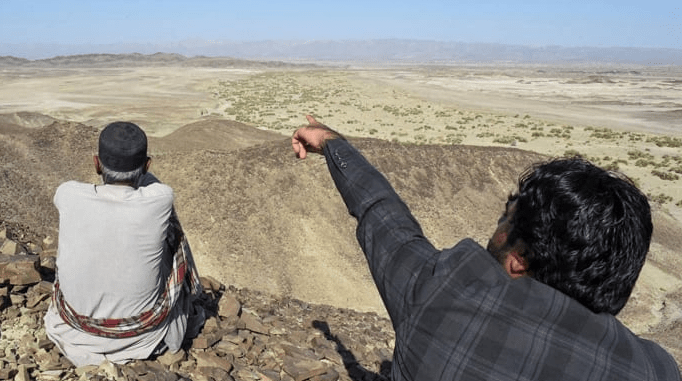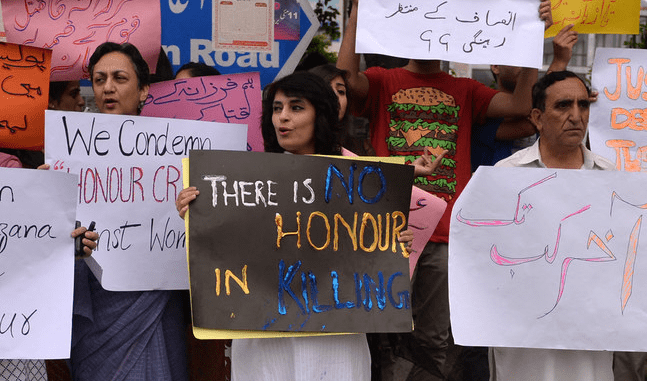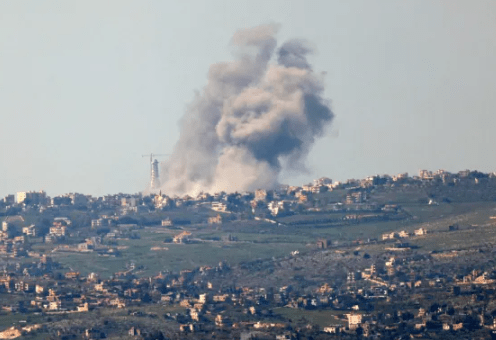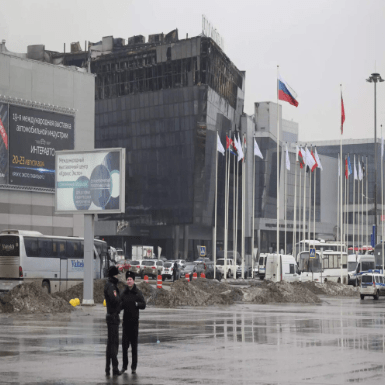Concern over struggle to prosecute Isis returnees as Turkey deportations loom

Concern is mounting over legal barriers that mean Isis fighters being sent back to the UK from Turkish jails cannot be prosecuted for joining the terrorist group.
Stefan Aristidou, who travelled to Syria in 2015, was charged with the less serious offence of sharing Isis propaganda because he has already served a sentence for his activities abroad.
The 27-year-old was deported to Britain from Turkey, where he had been among several British jihadis including alleged ‘Beatle’ Aine Davis jailed as Isis members.
Aristidou had been arrested on the Syrian border in April 2017, after spending time in the so-called Islamic State’s former capital of Raqqa, and was jailed for Isis membership in October 2018.
He was released early from a six-year prison sentence because of the coronavirus pandemic, and sent back to the UK in February.
British authorities are bracing for further deportations from Turkey, but under one in 10 returnees from Syria have been prosecuted so far.
Not all of the around 40 prosecutions involved terror offences, and only a tiny proportion were convicted of Isis membership.
Officials say their hands are tied by legal and practical issues, including the difficulty of proving what people did after crossing into Syria.
Evidence gathered by British security services, or interviews in custody abroad, cannot be used in court.
If jihadis have already served a prison sentence for joining Isis in Turkey or another country, they cannot be prosecuted for the same crime in the UK because of the legal principles of “autrefois convict” and abuse of process.
The Independent Reviewer of Terrorism Legislation, Jonathan Hall QC, said the difficulties have caused the government to focus on keeping jihadis out of Britiain using powers including citizenship deprivation and Temporary Exclusion Orders.
“Proving beyond reasonable doubt that a returner has committed terrorism offences in a conflict zone overseas is one of the thorniest challenges for police and prosecutors,” he told The Independent.
Aine Davis was convicted of being a member of a terrorist organisation in Turkey and jailed for seven and a half years in 2017 (PA)
A package of new terror laws in 2019 aimed to make prosecuting returned Isis fighters easier by creating a new offence of being in a “designated area” abroad.
“Those who travel abroad to fight in terrorist conflicts pose a threat to us all and need to be stopped,” said former home secretary Sajid Javid at the time.
“This offence will help make our streets a safer place, with those travelling to a designated area facing up to ten years in prison.”
However, no areas have been designated by the home secretary and the defeat of Isis’ territorial caliphate has made it harder to define zones solely inhabited by extremists.
Mr Hall said the law had never been used and added: “Even if that power was exercised today it could not be used to prosecute individuals for their behaviour before designation, because of the rule against retrospective penalisation.”
The government has powers to monitor and suspects within the UK where prosecution is not possible, using Terrorism Prevention and Investigation Measures.
Aristidou’s case resulted in him admitting seven counts of disseminating terrorist publications between November 2014 and February 2015 – before he left for Syria.
He will be sentenced in September and the maximum penalty is 15 years’ imprisonment.
Timeline of the Isis caliphate Show all 19 1 /19 Timeline of the Isis caliphate Timeline of the Isis caliphate ISIS began as a group by the merging of extremist organisations ISI and al-Nusra in 2013. Following clashes, Syrian rebels captured the ISIS headquarters in Aleppo in January 2014 (pictured) AFP/Getty Timeline of the Isis caliphate Abu Bakr Al-Baghdadi declared the creation of a caliphate in Mosul on 27 June 2014 Timeline of the Isis caliphate Isis conquered the Kurdish towns of Sinjar and Zumar in August 2014, forcing thousands of civilians to flee their homes. Pictured are a group of Yazidi Kurds who have fled Rex Timeline of the Isis caliphate On September 2 2014 Isis released a video depicting the beheading of US journalist Steven Sotloff. On September 13 they released another video showing the execution of British aid worker David Haines Timeline of the Isis caliphate The US launched its first airstrikes against Isis in Syria on 23 September 2014. Here Lt Gen William C Mayville Jnr speaks about the bombing campaign in the wake of the first strikes Getty Timeline of the Isis caliphate Isis militants sit atop a hill planted with their flag in the Syrian town of Kobani on 6 October 2014. They had been advancing on Kobani since mid-September and by now was in control of the city’s entrance and exit points AFP/Getty Timeline of the Isis caliphate Residents of the border village of Alizar keep guard day and night as they wait in fear of mortar fire from Isis who have occupied the nearby city of Kobani Getty Timeline of the Isis caliphate Smoke rises following a US airstrike on Kobani, 28 October 2014 AFP/Getty Timeline of the Isis caliphate YPG fighters raise a flag as they reclaim Kobani on 26 January 2015 VOA Timeline of the Isis caliphate Isis seized the ancient Syrian city of Palmyra on 20 May 2015. This image show the city from above days after its capture by Isis Getty Timeline of the Isis caliphate Kurdish forces are stationed on a hill above the town of Sinjar as smoke rises following US airstrikes on 12 November 2015 AFP/Getty Timeline of the Isis caliphate Kurdish forces enter Sinjar after seizing it from Isis control on 13 November 2015 AFP/Getty Timeline of the Isis caliphate Iraqi government forces make the victory sign as they retake the city of Fallujah from ISIS on 26 June 2016 Getty Timeline of the Isis caliphate Iraqi forces battle with Isis for the city of Mosul on 30 June 2017 AFP/Getty Timeline of the Isis caliphate Members of the Iraqi federal police raise flags in Mosul on 8 July 2017. On the following day, Iraqi prime minister Haider Al Abadi declares victory over Isis in Mosul Getty Timeline of the Isis caliphate Members of Syrian Democratic Forces celebrate in Al-Naim square after taking back the city of Raqqa from Isis. US-backed Syrian forces declare victory over Isis in Raqqa on 20 October 2017 after a four-month long campaign Getty Timeline of the Isis caliphate Female fighters of the Syrian Democratic Forces celebrate in Al-Naim Square after taking back the city of Raqqa from Isis. US-backed Syrian forces declare victory over Isis in Raqqa on 20 October 2017 after a four-month long campaign AFP/Getty Timeline of the Isis caliphate Trucks full of women and children arrive from the last Isis-held areas in Deir ez-Zor, Syria in January 2019 They were among the last civilians to be living in the ISIS caliphate, by this time reduced to just two small villages in Syria’s Deir ez-Zor Richard Hall/The Independent Timeline of the Isis caliphate Zikia Ibrahim, 28, with her two-year-old son and 8-month-old daughter, after fleeing the Isis caliphate, on Saturday 26 January 2019 Richard Hall/The Independent
Prosecutor Lee Ingham had told the court: “He left the country in March 2015 indicating a desire to go to Syria and join Isis.
”In the meantime, he is believed to have either been in Syria or serving his sentence in Turkey. He was deported at the end of that.“
Raffaello Pantucci, a senior associate fellow in international security studies at the Royal United Services Institute (Rusi) said the Aristidou case had illustrated longstanding problems.
He told The Independent: “You have a bizarre situation where someone has clearly fought in Syria and they can’t prosecute him for that, and at the end of the day he’s prosecuted for something he did before he travelled.”
Mr Pantucci said similar situations would “show up more and once Covid restrictions lift”.
“People are going to show up,” he added. “They will be leaving Syria or the Turks will throw them out of prison. They’ve got [alleged Isis Beatle] Aine Davis, they’ve got some very dangerous people.”
Kurdish authorities in Syria are also holding high-profile Isis members from the UK including Shamima Begum and “jihadi” Jack Letts.
The Syrian Democratic Forces have repeatedly appealed for their home nations to repatriate jihadis from prisons and camps and although some countries responded to the call the British government has refused.
A Home Office spokesperson said:“Everyone who returns from taking part in the conflict in Syria or Iraq must expect to be investigated by the police to determine if they have committed criminal offences and where there is evidence that a crime has been committed, prosecuted.
“Decisions on prosecutions are taken independently by the police and Crown Prosecution Service on a case-by-case basis.
“These individuals are also not free to commit crimes upon return and we will always take the strongest possible action to protect our national security and the safety of our citizens.”





